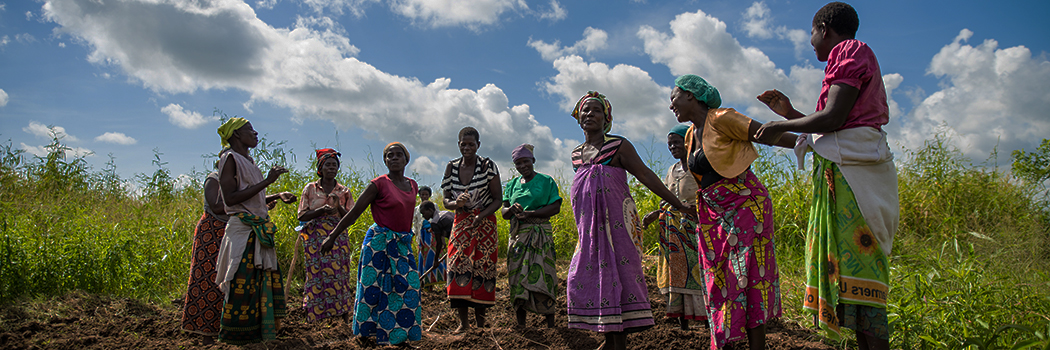Chikwawa District in Malawi has battled a long history of food insecurity due to drought, most recently during the 2015 growing season. CRS’s Diversification for Nutrition and Enhanced Resilience (DiNER) Fair program offers subsidized agricultural vouchers to beneficiaries to use to purchase drought-resistant seeds. The vendors also benefit by having a place in which to reliably sell their goods. These fairs help beneficiaries gain the ability to plant staple crops in the upcoming agricultural season, as well as encourage improved agricultural practices that build resilience to future shocks. DiNER Fairs target vulnerable families such as Alefa Tom, 68, and her husband Dyson Tom, 77. They are raising 6 young children; three of their own children (Godfrey, 14, Talandila, 12, Chisomo, 11) and three grandchildren (Tamara, 9 and Paul and Guzani, 7 year old twins). Alefa attended the first CRS DiNER Fair in her village and chose to buy two bags of hybrid maize seed, cabbage, rabe, Chinese cabbage and tomato seeds. In 2015, several of Alefa’s crops (common beans, sesame and rice) failed due to the drought. She had no peace of mind and was worried about money and food for her family. She had to sell part of her land and bought rice seed with the money. Not as many people grow rice, so she can get more money from selling it. Last year she harvested 36 bags of maize and sold 10, which helped her to send her children to school. The harvest from the seeds she purchased at the DiNER Fair will help with school costs as well. Alefa is a member of the Nkhombedzi Rice Scheme, a group of 50 people who plant on communal land. She has been a member for 15 years, and once selected, you are a member for life. Her friend Modesta Thole, 53, is chairperson of the scheme.
Pictured: Members of the Nkhombedzi Rice Scheme take a break to sing a dance.




You must be logged in to post a comment.